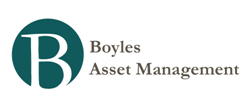Money and Finance
- Why I Spent 10th Grade Online - By Sophia Pink
The debate about online education is polarized — it’s either a grand solution for schools’ troubles, or it’s a menace. For example, the Economist recently reported that, because of MOOCs, “the ivory towers of academia have been shaken to their...
- For-profit Colleges, Vulnerable G.i.’s - By Hollister Petraeus
MILITARY personnel and their families are finding themselves under siege from for-profit colleges. A number of these schools focus on members of the armed forces with aggressive and often misleading marketing, and then provide little academic, administrative...
- Academic Bankruptcy - By Mark C. Taylor
WITH the academic year about to begin, colleges and universities, as well as students and their parents, are facing an unprecedented financial crisis. What we’ve seen with California’s distinguished state university system — huge cutbacks in spending...
- The New Untouchables - By Thomas Friedman
Last summer I attended a talk by Michelle Rhee, the dynamic chancellor of public schools in Washington. Just before the session began, a man came up, introduced himself as Todd Martin and whispered to me that what Rhee was about to speak about — our...
- A Long Term Plan To Continue Giving Back
Once I reach early financial independence, I have a plan to spend more time giving back, mostly in the form of time. However, one idea that I have to give back will be through money with a scholarship. A scholarship is a great way to help motivated...
Money and Finance
Public Money Finds Back Door to Private Schools
Found via Greg Mankiw’s blog.
When the Georgia legislature passed a private school scholarship program in 2008, lawmakers promoted it as a way to give poor children the same education choices as the wealthy.
The program would be supported by donations to nonprofit scholarship groups, and Georgians who contributed would receive dollar-for-dollar tax credits, up to $2,500 a couple. The intent was that money otherwise due to the Georgia treasury — about $50 million a year — would be used instead to help needy students escape struggling public schools.
That was the idea, at least. But parents meeting at Gwinnett Christian Academy got a completely different story last year.
“A very small percentage of that money will be set aside for a needs-based scholarship fund,” Wyatt Bozeman, an administrator at the school near Atlanta, said during an informational session. “The rest of the money will be channeled to the family that raised it.”
…..
While the scholarship programs have helped many children whose parents would have to scrimp or work several jobs to send them to private schools, the money has also been used to attract star football players, expand the payrolls of the nonprofit scholarship groups and spread the theology of creationism, interviews and documents show. Even some private school parents and administrators have questioned whether the programs are a charade.
Most of the private schools are religious. Nearly a quarter of the participating schools in Georgia require families to make a profession of religious faith, according to their Web sites. Many of those schools adhere to a fundamentalist brand of Christianity. A commonly used sixth-grade science text retells the creation story contained in Genesis, omitting any other explanation. An economics book used in some high schools holds that the Antichrist — a world ruler predicted in the New Testament — will one day control what is bought and sold.
The programs are insulated from provisions requiring church-state separation because the donations are collected and distributed by the nonprofit scholarship groups.
- Why I Spent 10th Grade Online - By Sophia Pink
The debate about online education is polarized — it’s either a grand solution for schools’ troubles, or it’s a menace. For example, the Economist recently reported that, because of MOOCs, “the ivory towers of academia have been shaken to their...
- For-profit Colleges, Vulnerable G.i.’s - By Hollister Petraeus
MILITARY personnel and their families are finding themselves under siege from for-profit colleges. A number of these schools focus on members of the armed forces with aggressive and often misleading marketing, and then provide little academic, administrative...
- Academic Bankruptcy - By Mark C. Taylor
WITH the academic year about to begin, colleges and universities, as well as students and their parents, are facing an unprecedented financial crisis. What we’ve seen with California’s distinguished state university system — huge cutbacks in spending...
- The New Untouchables - By Thomas Friedman
Last summer I attended a talk by Michelle Rhee, the dynamic chancellor of public schools in Washington. Just before the session began, a man came up, introduced himself as Todd Martin and whispered to me that what Rhee was about to speak about — our...
- A Long Term Plan To Continue Giving Back
Once I reach early financial independence, I have a plan to spend more time giving back, mostly in the form of time. However, one idea that I have to give back will be through money with a scholarship. A scholarship is a great way to help motivated...

